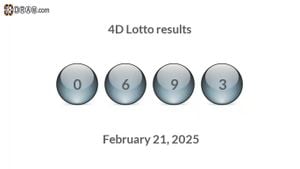With the upcoming Bundestagswahl drawing near, the latest ZDF Politbarometer survey results have caused quite a stir, highlighting significant changes within Germany's political arena. The survey, conducted by the Mannheim Research Group, indicates some troubling figures for established parties.
The CDU/CSU coalition, traditionally one of the dominant forces, has dropped to 28 percent, losing two percentage points since the previous week. This slump brings the party perilously close to the psychological barrier of 30 percent, stirring concerns about their election viability. Meanwhile, the Alternative for Germany (AfD) has gained one percentage point to reach 21 percent, showing steady support among voters who favor its right-wing agenda.
Taking center stage is the rising Left Party, which has seen its support grow to 8 percent, potentially securing its place back in the Bundestag. Both the Free Democratic Party (FDP) and the newly formed party led by Sahra Wagenknecht, known as the Bündnis Sahra Wagenknecht (BSW), are clinging onto the hope of parliamentary representation, each hovering at 4.5 percent—just below the significant five-percent threshold needed for entry.
This fluctuation is causing both parties to grapple with uncertainty, as the electorate's indecision looms largely over the upcoming elections. Currently, 27 percent of polled voters remain unsure about their choices, leading to significant speculation about how these sentiments could shift as election day approaches.
Political strategists are now acutely focused on potential coalition formations, as the latest figures indicate the kind of alliances parties might need to forge for governing power. With the CDU/CSU struggling to gain substantial ground and needing SPD for any chance of forming a stable majority, there are questions over whether parties could realistically cooperate to create functional governance.
The possibility of continued governance through another Grand Coalition of the CDU/CSU and SPD appears feasible on paper—this hypothetical partnership would yield 319 seats—slightly more than the 316 required for an absolute majority. Nevertheless, with such a slim margin and notable uncertainties, there are fears over the coalition's stability and long-term viability.
Another notable result from the survey pertains to the preference for Germany's future chancellor. Friedrich Merz is the current frontrunner with 32 percent of the respondents indicating their support. Despite this lead, Merz has lost one percentage point compared to the previous survey results. Robert Habeck of the Green Party has seen his backing fall to 21 percent—a drop of three points—while Olaf Scholz, the current chancellor, has gained one point, now sitting at 18 percent. Alice Weidel remains steady at 14 percent, showing no change since last week. Interestingly, the number of undecided voters concerning the leadership question has also increased, from 12 to 15 percent, reflecting growing uncertainty among constituents.
The survey's broader implication points to the unpredictable nature of political allegiances, with many voters actively analyzing party dynamics as they prepare to cast their votes. A significant factor to note is the fear surrounding the FDP and BSW's survival in the elections; both parties have just eked above last week's figures and must work diligently to solidify their positions.
Critically, the state of voter mobilization could heavily sway the election results come polling day. Parties will now focus on rallying supporters and ensuring high turnout among their bases as the public remains unconvinced.
The Mannheim Research Group conducted this representative survey from February 19 to 20, 2025, through telephone calls and online polling with 1,349 randomly selected eligible voters. The margin of error stands at around ±3 percentage points at higher voter percentages and ±2 percentage points at lower ones, indicating the necessity for studied caution when forecasting election results.
Overall, the stage is set for potential upheaval within the Bundestag as voter sentiment continues to fluctuate, and parties must adapt quickly to the changing political tides. All eyes will be on the current poll figures as they provide hints about what might come following the election, with coalition discussions already heating up within the political circles.



